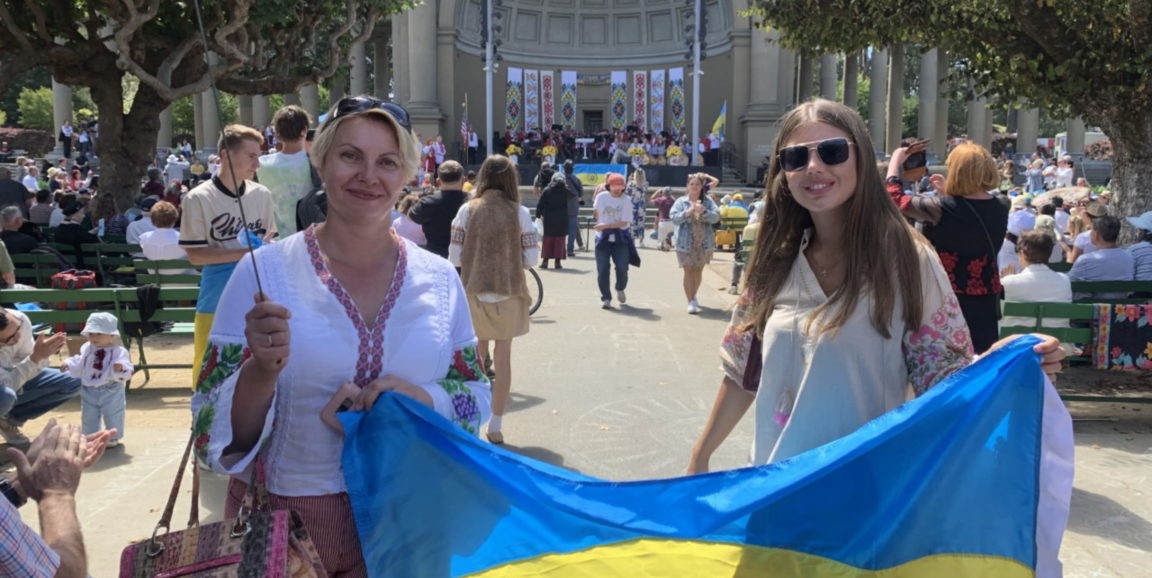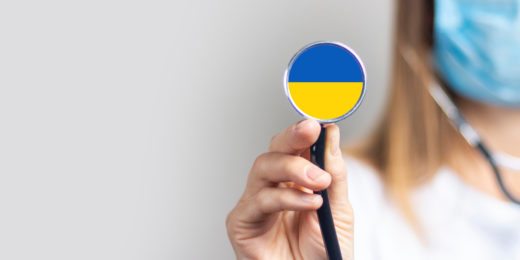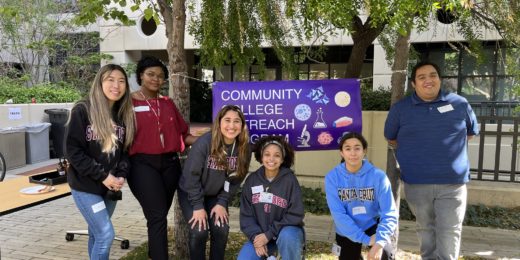Soon after Russia invaded Ukraine in February, Yuliia Lozko, MD, a medical resident at the National Cancer Institute of Ukraine, faced her worst nightmare: the Russian army started launching missiles at Kyiv.
"The first bombs that came to the capital exploded close to my hospital," Lozko recalled. "I wondered, 'Should I go to work today? I don't want to die.'"
As the damage from the war spread, the director of the cancer institute's hospital stopped accepting new patients. With prompting by the hospital's chief medical officer, Andriy Beznosenko, MD, PhD, Lozko evacuated and found refuge in western Ukraine, effectively halting her radiation oncology residency.
With no end to the invasion in sight, Lozko began looking for opportunities to continue her medical training abroad.
A partnership is born
A few weeks after the initial invasion of Ukraine, Nataliya Kovalchuk, PhD, a clinical associate professor of radiation oncology at the Stanford School of Medicine, sent an email to cancer centers in Ukraine, asking how she could help.
She connected with Beznosenko, and together with other practitioners from the U.S. and Australia, they formed Help Ukraine Group, which aims to support cancer care in Ukraine. Part of the group's initial mission was to find placement for female Ukrainian doctors in safe educational havens. The goal was to help them continue developing their skills and ultimately bring that to bear on health care in Ukraine.
Help for Ukrainian scholars at Stanford
Kovalchuk, who was born in Ukraine, began working to set up a visiting scholar program at Stanford Medicine. Lozko, who joined the Radiation Oncology department, became the program's first visiting scholar earlier this summer.
Program facilitators plan to train Ukrainian visitors on modern oncology technology, including teaching workflow and safety measures.
"In Ukraine, many of the new techniques in radiation oncology are just being deployed, and the doctors don't have a lot of experience in them," Lozko said. "I will spend six months in the program, which is packed with facts, skills and technologies -- all at my fingertips -- that I can bring home at the end and share with my colleagues."
Kovalchuk, who has helped provide medical supplies, software and hardware, and online training courses to medical professionals in Ukraine, said that the goal of the program is to fill gaps in the Ukrainians' medical education. "We hope they become superusers of these technologies and teach others in Ukraine."
On Aug. 18, the program welcomed a second visiting scholar from Ukraine, Yuliia Severyn, MD. When the war broke out, she is a pediatric oncologist and assistant professor at P.L. Shupyk National Medical Academy of Postgraduate Education and Okhmatdyt Children's Hospital, Ukraine's largest national pediatric cancer hospital.
Severyn said she is excited and proud to be at Stanford Medicine and to have access to modern technology.
"Here, you get to see how radiation therapy can be improved with the most up-to-date techniques," Severyn said. "I listen to lectures from Stanford Medicine residents and see the possibilities for different cases and follow-ups and I think, 'We could save so many lives in Ukraine.'"
Kovalchuk plans to host more scholars over the next several years and hopes to create similar initiatives in other Stanford Medicine departments and other institutions. Help Ukraine Group already secured nine positions for Ukrainian medical professionals at Stanford Medicine and other universities and institutions.
After the program, in addition to sharing what they've learned with colleagues, Lozko wants to start international virtual workshops and lectures for medical students and residents of various oncology specialties so they can continue learning, despite the war.
Although Lozko is enjoying her time at Stanford Medicine, Ukraine's troubles haven't left her mind. She still receives missile alerts throughout the day and night, something she monitors for her family.
"Ukraine is bleeding, but Ukraine is an anchor of hope," she said. "It will rebuild and be better than before -- including our doctors."
Top photo, courtesy of Nataliya Kovalchuk, is of Yuliia Severyn (left) and Yuliia Lozko (right) celebrating Ukrainian Independence Day in Golden Gate Park in San Francisco.






